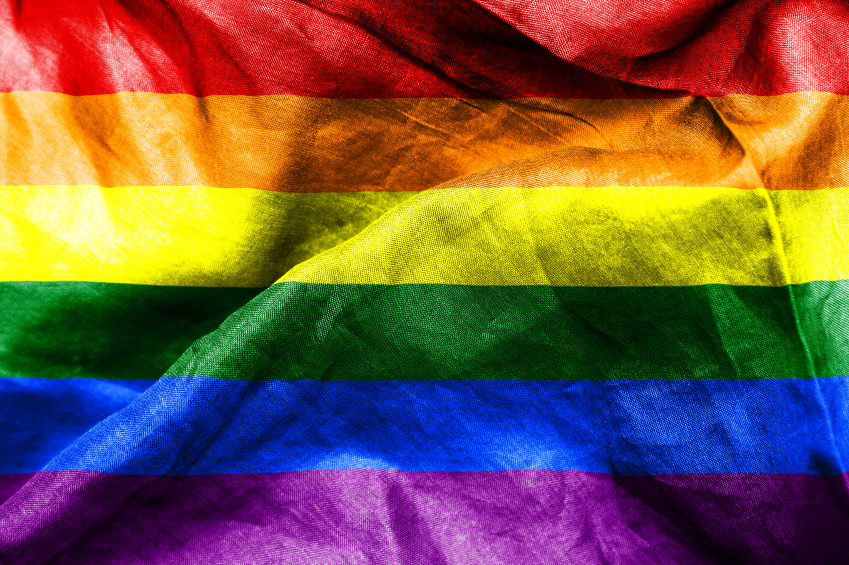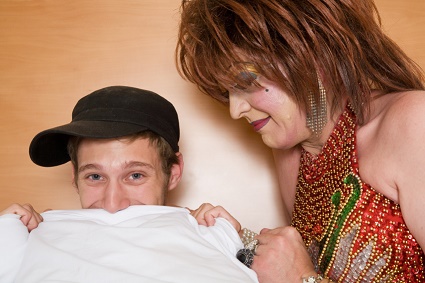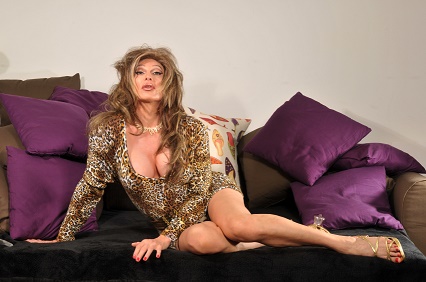For future generations, the beginning of the 21st century will be synonymous with change. Over the past two decades the landscape of Western society has dramatically shifted – with the birth of the digital age giving rise to rapid technological development, increased secularisation and an erosion of boundaries. This latter point, in particular, relates not only to the boundaries created by nationalist identities (a quick look at Twitter or Facebook will quickly reveal how globalised we’ve become) but also those created by gender and sexual identities.

A Changing World
Whereas the 20th century was momentous in its dismantling of racial prejudice, it is largely the 21st century that has really helped to remould the perception toward homosexuality, with same-sex marriages now legal within many places in the world. It is essential not to underestimate the internet’s importance when it comes to facilitating and shaping such change, as it permits a never-seen-before mobilisation of people with similar values, and provides a stage for irrepressible freedom of expression.
Recently, however, the focus has shifted from same-sex union to other often tabooed subjects: transgender, transsexual and transvestite.
Not so long ago the case of Bruce Jenner made global headlines – a once quintessentially masculine celebrity figure who has said he identifies as a woman. The resurgence of this type of gender dysphoria has in turn re-ignited considerations of what it is to be a transvestite or transsexual, with transgender now serving as a part-way umbrella term for an individual who identifies, on whichever level, with the opposite sex.
For some, the most surprising part of Bruce Jenner’s revelation will be the lack of global surprise, with many sharing the same affinity with the other sex. Particularly in America, transgenderism is no new subject and has featured as a recurring talking point over the past decade. In whichever form it takes, the discussion about gender identities is a necessary one, and has given birth to a new wave of tolerance. Those who embrace it have found new acceptance, both for themselves and for their loved ones.
However, there’s an important distinction to be made between understanding and tolerance. Whilst any individual’s choices may expect to be tolerated, there are still many who fail to understand, through no fault of their own, the impulses behind transsexuals, transvestites and transgenders.

So what is it to be a transsexual, transvestite or transgender?
Whilst the term of ‘transgender’ incorporates the ideological standpoint of the other two, there is a physical difference between transsexuals and transvestites. A transexual is a male or female who has received medical treatment to legally alter their gender status, either through hormone therapy or genital surgery. A transvestite, meanwhile, is somebody who has not had medical intervention, but mirrors the behaviour of the opposite sex through cross dressing or other behaviours.
Legally, there are also distinctions between the three, and opinions largely differ as to whether transsexuals can also be considered transgender. However, at the core of all is a reaction to the polarisation of gender identities imposed by society. They each seek to refute the binary structure of ‘male’ and ‘female, and the stereotypical behaviours that exist therein.
The will to reshape social institution is similar to that within gay advocates, and represents the same gradual dismantling of traditional gender identities. For us, the discussions about gender are important, and lead to a simple question: what is it to be male or female in the 21st century?
An Erosion of Genders
We can no longer stand by archaic structures or classifications, or entertain the binary relationship between male and female. Even outside the discussion of transexuals and transvestites, the erosion between genders is already occurring, with a general will to remove the labels of traditionally gender-specific characteristics. Metrosexuals, for example, do not necessarily make an argument about gender identity or sexual orientation, but simply possess characteristics traditionally exclusive to the opposite sex.
What are the arguments against?
Since its formal incarnation, there have been many critics and activists opposed to the idea of transgender. In many cases, this is down to an inability to understand the desire of an individual seeking some affinity for the other sex, whilst for others it’s an intolerance caused by the compulsion to lean toward traditional values (whether they are borne from religious beliefs or those imposed by society).
Simply put, transgenderism encroaches on some pretty formidable structures that are part of the foundations of Western society. The deracination of conventional ideas, and the persuasion of change, has always induced fear, and that’s why these issues are once again a close cousin to those presented by sexual orientation. For others, the blurring between genders is another stepping stone toward an androgynous human species (non-gender specific) – wherein both mental and physical distinctions cease to exist.

What the outcome will be is unknown. But what we can be thankful of is the acceptance of the gender discourse, which owes so much to previous discourses of sexuality. In short, the tolerance of the discussion will facilitate change, one way or another.
It’s already started within many major cities across the world. As one of the West’s cosmopolitan epicentres, Dublin, for example, has a much higher prevalence of transsexuals and transvestites, with our statistics showing that over 50% of Ireland’s TS escorts and TV escorts operate from within the city. The reason for this is simple: change occurs at the heart of a country before it spreads outwards. As a historical and cultural city, Dublin enjoys a progressive and free-thinking landscape, which is far less bogged down in the in traditional (or archaic) notions of what is acceptable and what is not.
In Latin the prefix ‘trans’ means to ‘go beyond’. So for our transvestite (TV) escorts and transsexual (TS) escorts, it is enough to be thankful that we live in a trans-intolerance society, where the principles of liberalism (aided by the open forum of the internet) have managed to supplant many of the prejudices that pervaded and distorted similar discussion throughout the 20th century.
- The Bin Laden Porn Files - June 15, 2015
- Porn Versus Celebrity Nudes - June 12, 2015
- Dawn of sexploration: where no penis has gone before - June 11, 2015
Please log in here to leave a comment.